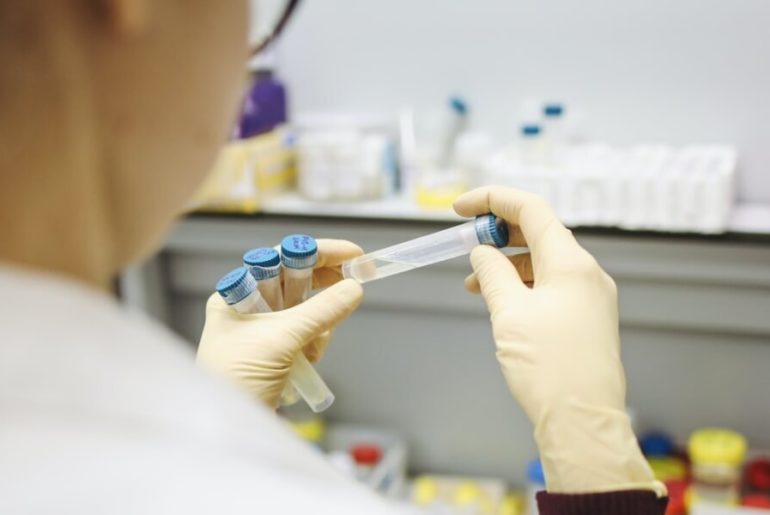UPDATE 4/26/2021:
As of April 25, 2021, the FDA and CDC have once again recommended that it is safe to use the Johnson & Johnson vaccine after a temporary pause due to health concerns. You can now choose to get this vaccine, which only has one dose.
The CDC’s new report says that the benefits of getting vaccinated against Covid-19 are worth the very small risk of having a bad reaction. The report also contains a warning that young women under 50 who get the Johnson & Johnson vaccine do have a small risk of a rare blood clotting disorder called thrombocytopenia syndrome (TTS).
Women younger than 50 “should be aware” of the “rare but increased risk” of TTS, the CDC noted, adding that the other available Covid-19 vaccine options from Pfizer and Moderna don’t have the same risks.
“A review of all available data at this time shows that the J&J/Janssen COVID-19 Vaccine’s known and potential benefits outweigh its known and potential risks,” the report added.
EARLIER:
The Food and Drug Administration and Centers for Disease Control and Prevention made headlines on April 13 when they jointly recommended a pause in the use of Johnson & Johnson’s one-shot Covid-19 vaccine after six women ranging in age from 18 to 48 developed rare blood clots, leading to the death of one person. So far, nearly seven million people have gotten the J&J vaccine.
After the announcement, the agencies announced that they would be investigating the blood clots.
Many news sources and government authorities have pointed out that your chance of having a bad allergic reaction is about one in a million, meaning it’s very, very rare to have a severe reaction to the Covid-19 vaccines.
Still, it’s normal to be concerned when you hear this kind of news. Here is information you need to feel safe about getting vaccinated.
If you’ve already gotten the J&J vaccine:
In a press conference earlier in April, National Institutes of Allergy and Infectious Diseases Director Dr. Anthony Fauci said that if you got the J&J vaccine more than a month ago and have no symptoms, there’s no reason to worry — because if you were going to have a bad reaction, it would already have happened by now.
If you’ve gotten the J&J vaccine within the last month, try not to stress out — while also being on the lookout for these symptoms:
- Bad headache
- Abdominal pain
- Leg pain
- Shortness of breath
Fauci added that any discomfort in the chest or neurological changes, such as changes to your vision, could also be symptoms of a reaction.
“Don’t get an anxiety reaction, because remember it’s less than one in a million,” Fauci said. “However, having said that, pay attention.”
If you haven’t been vaccinated yet:
Dr. Fauci has suggested that the U.S. may resume the use of the J&J vaccine very soon — potentially with warnings or restrictions attached.
Now that vaccines are becoming much more available to the general public, you can take those warnings into account when deciding which vaccine to get.
Is the J&J vaccine safe?
You should be aware of minor risks of having a reaction when getting any kind of vaccine, not just the Covid-19 shot The risks are very low compared to the health risks of getting Covid-19, which government officials and most medical doctors are urging when discussing the safety of these vaccines.
More information about the Johnson & Johnson vaccine:
Manufacturing of the vaccine at the Baltimore facility has been halted.
On April 21, the FDA issued a report about unsanitary conditions and manufacturing failures at the Baltimore, Maryland facility where J&J was manufacturing vaccines.
As The Washington Post reported, “the inspectors found that medical waste was improperly handled,” found “peeling paint and black and brown residue on walls” in sensitive work areas, and “through a review of security camera footage, the FDA documented workers repeatedly failing to follow procedures to prevent cross-contamination of the different vaccines being manufactured there.”
This cross-contamination with materials used for the AstraZeneca vaccine in March led to batches of the J&J vaccine being taken out of the supply given to the U.S. government.
The FDA and CDC have not yet said whether these manufacturing issues may be related to the adverse reactions experienced by six women that led to the pause in distribution.
Europe resumes J&J vaccine rollout:
Meanwhile, countries in the European Union are preparing to start using the one-shot J&J vaccine again after the EU paused its usage following similar concerns about blood clotting. The EU’s drug regulation agency found links between the AstraZeneca two-dose vaccine and rare cases of blood clotting as well.

